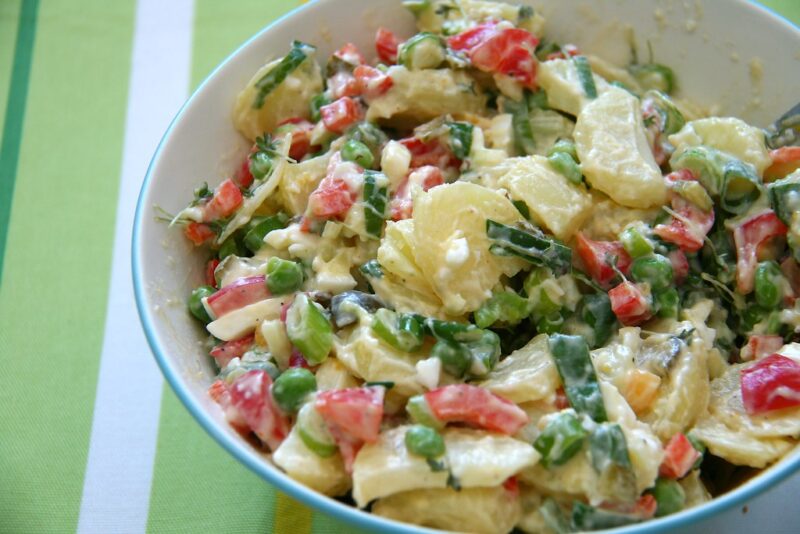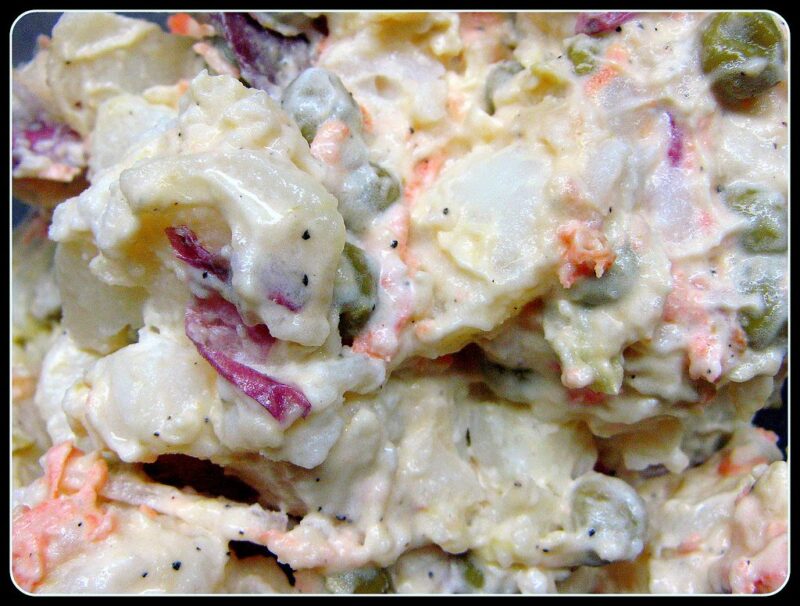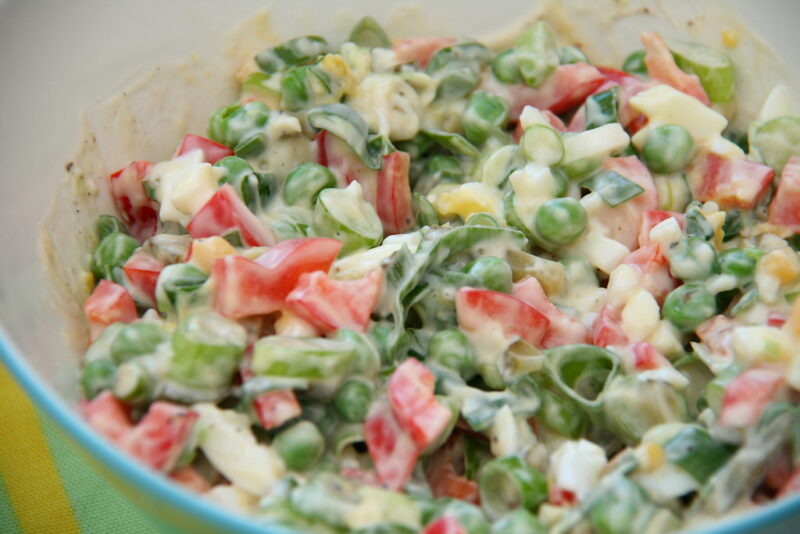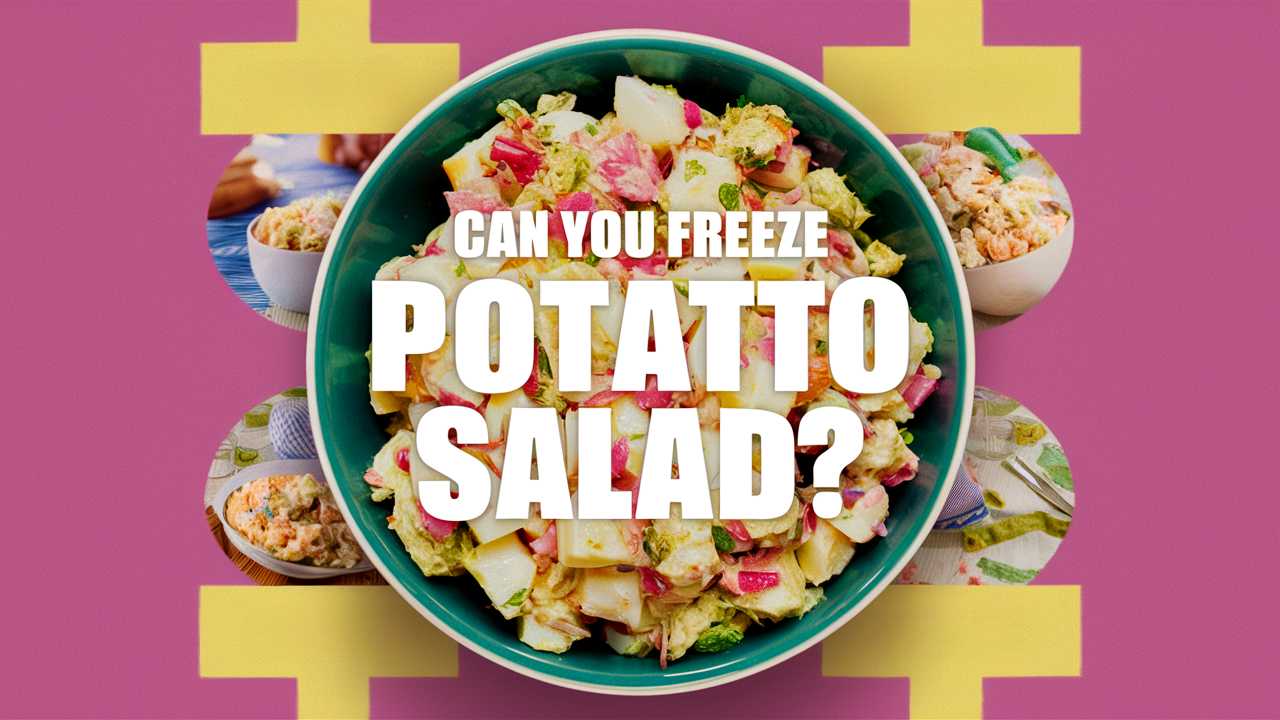In this guide, we will explore the ins and outs of freezing this iconic dish, providing insights, tips, and methods that will help you make the most of your culinary endeavors.
Can You Freeze Potato Salad?

The short answer is yes, but with some qualifications. Freezing potato salad can change its texture and flavor depending on the ingredients used. Here’s what you need to consider:
Ingredients Matter
Mayonnaise-based Dressings: Many consider mayonnaise a tricky ingredient when it comes to freezing. The emulsion can break, leading to a watery, grainy texture when thawed.
Vegetables: Ingredients like celery and onions may become mushy post-freezing, negatively affecting the salad’s crunch.
Eggs: Hard-boiled eggs can also hold up poorly when frozen, leading to an unappetizing texture upon defrosting.
Potential Changes in Flavor
Freezing can sometimes dull the flavors of fresh herbs and seasonings. The overall taste of your potato salad might not be as vibrant after it’s been frozen.
With this in mind, let’s look at how to properly freeze potato salad if you choose to do so.
How to Freeze Potato Salad

If you decide to take the plunge, here’s a step-by-step guide on how to freeze potato salad effectively:
Step 1: Choose the Right Recipe
Before freezing, assess your recipe. If it relies heavily on mayonnaise or has multiple crunchy vegetables, consider modifying it slightly. Perhaps you can prepare a version meant for freezing—one that uses olive oil or a vinegar-based dressing instead of mayo.
Step 2: Portion Control
Instead of freezing large batches, portion your potato salad into smaller containers. This not only makes it easier to thaw but also helps to minimize waste.
Step 3: Use Airtight Containers
Invest in good-quality airtight containers or freezer bags. Ensure they are freezer-safe to prevent any freezer burn from affecting your potato salad. If using bags, press out as much air as possible before sealing. Label the container with the date, so you keep track of how long it’s been stored.
Step 4: Freeze Promptly
Once packed, place your potato salad in the freezer. Ideally, you’ll want to freeze it as soon as possible after preparing to maintain quality.
Step 5: Thawing
To thaw, place the container in the refrigerator for several hours or overnight. Avoid defrosting at room temperature, as this can promote bacterial growth. After thawing, give your potato salad a good stir and taste it; you may need to adjust the seasoning or add fresh ingredients for a flavor boost.
Evaluating the Freezing Process

While the steps above can allow you to freeze potato salad, it’s equally important to recognize the potential downsides.
Texture Changes
After freezing, the salad may take on a mushy texture, particularly if you used ingredients that don’t handle freezing well. Vegetables lose their crispness, and the overall dish may feel less inviting.
Flavor Loss
The rich flavors that one usually appreciates in a fresh potato salad may diminish. Ingredients like onions, herbs, and seasonings may require a little sprucing up.
A Personal Anecdote
I once had a lovely summer picnic, where a friend brought her family’s secret potato salad recipe. It was a hit and soon the leftovers found their way home with me enthusiastic to savor them later. I decided to freeze some for a busy week ahead, not contemplating the texture and flavor shifts. When I thawed it a week later, while the taste was still good, the consistency was rather disappointing. I learned that this beloved dish deserves to be enjoyed fresh!
Alternatives to Freezing Potato Salad

Given the intricacies of freezing potato salad, exploring alternatives can be valuable. Here are a few ideas when you find yourself with leftovers or during meal prep:
Preparing Fresh as Needed
Instead of freezing, consider prepping your ingredients separately. Cook the potatoes, store them in the fridge, and mix with your dressing and other ingredients just before serving. This approach maintains freshness and texture.
Make Smaller Batches
If you often find yourself with leftover potato salad, scale down your recipes. Making a smaller quantity lessens the chance of having to freeze and sacrifice texture.
Jars or Handy Storage Solutions
Using jars can help keep your salads fresh longer without freezing. Layering your potatoes and dressing separately until you’re ready to serve can be an excellent way to maximize quality.
Recipes for Freezing-Friendly Potato Salads
Should you want to experiment, here are a couple of potato salad recipes designed with freezing in mind.
Light Olive Oil and Vinegar Potato Salad
Ingredients:
2 pounds or so of small Yukon Gold potatoes
1/4 cup olive oil
1/4 cup apple cider vinegar
Chopped fresh herbs (parsley, basil, dill)
Salt and pepper to taste
Instructions:
Boil the potatoes until tender but firm, about 12-15 minutes.
Once cooled, cut them into bite-sized pieces.
Toss with olive oil, vinegar, herbs, salt, and pepper in a large bowl.
Cool completely before packing and freezing.
This salad maintains better texture and flavor when frozen compared to traditional creamy versions.
Mustard-based Potato Salad
Ingredients:
2 pounds of baby potatoes, halved
1/4 cup mustard (Dijon or yellow)
1/4 cup olive oil
Finely chopped red onion
Chopped chives
Salt and pepper
Instructions:
Cook potatoes as described above and let them cool.
In a bowl, whisk together mustard, olive oil, and seasonings.
Pour the mustard mixture over potatoes and add onions and chives. Mix gently.
Pack and freeze, following earlier guidelines.
Both of these recipes offer a refreshing twist while being suited for freezing.
Storage Duration and Food Safety
While food safety is always a priority, even when freezing food, knowing how long your potato salad can last is essential. Generally, potato salad can stay in the freezer for about 2 to 3 months without significant quality degradation. Beyond that, you risk diminishing taste and texture. Always label your containers with dates, and when in doubt, use your senses to assess the food once thawed.
Conclusion
To summarize, freezing potato salad is possible but requires careful thought regarding the ingredients and expected outcomes. Alternatives like preparing fresh when needed or utilizing freezing-friendly recipes can enhance your culinary experience without sacrificing enjoyment.
The next time you find yourself pondering “Can you freeze potato salad?”, remember to weigh the pros and cons, nurture your love for cooking, and consider the fabulous meals that can emerge from a little preparation and creativity.





